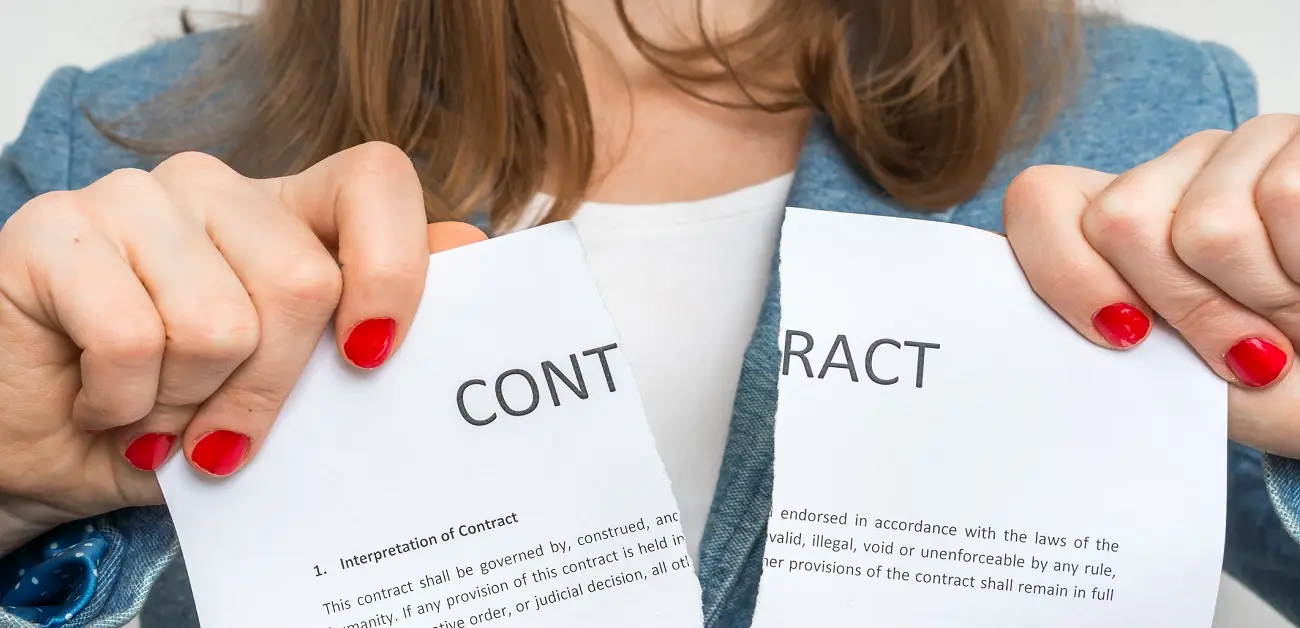Selling a home is a significant decision, and once a contract is signed, it becomes a legally binding agreement. However, circumstances may change, leading a seller to reconsider. Can a seller back out of a contract? Yes, but only under specific conditions.
A seller can withdraw if certain contingencies are in place, the buyer breaches the contract, or both parties agree to cancel. However, backing out without a valid reason may lead to legal and financial consequences. This guide explains when a seller can back out, the risks involved, and how to handle the situation properly.
1. Understanding a Real Estate Contract
What Is a Real Estate Contract?
A real estate contract outlines the terms of a home sale. Once signed, both the seller and buyer are expected to follow its conditions.
Key Elements of a Real Estate Contract
- Purchase Price – The agreed amount the buyer will pay.
- Contingencies – Conditions that allow either party to cancel under specific circumstances.
- Closing Date – The deadline for completing the transaction.
- Earnest Money Deposit – A buyer’s payment to show commitment to the purchase.
Since these contracts are legally binding, backing out without a valid reason can lead to penalties.
2. When Can a Seller Back Out?
Contingencies That Allow a Seller to Withdraw
A seller can include contingencies in the contract that provide a legal way to back out. These may include:
- Home Sale Contingency – If the seller has not found a new home, they may have the right to cancel the sale.
- Appraisal Contingency – If the property’s appraisal comes in lower than expected and the buyer refuses to adjust the offer.
- Title Issues – If unresolved legal problems arise with the property title, the sale may not proceed.
Buyer’s Failure to Meet Contract Terms
If the buyer does not fulfil their contractual obligations, the seller may have grounds to back out. Common buyer failures include:
- Not securing financing within the agreed timeframe.
- Missing deadlines for inspections or paperwork.
- Failing to deposit earnest money as required.
Mutual Agreement to Cancel the Contract
In some cases, both the buyer and seller may agree to terminate the contract. If the buyer is willing, the seller can avoid legal issues and penalties.

3. Risks of Backing Out Without a Valid Reason
Legal Consequences
A seller who cancels a contract without legal grounds may face lawsuits. The buyer can sue for:
- Breach of Contract – The buyer may demand compensation for financial losses.
- Specific Performance – The court may require the seller to complete the sale as agreed.
Financial Penalties
Sellers may need to refund the buyer’s earnest money deposit and cover additional expenses if they back out unfairly.
Market and Reputation Damage
Backing out without cause can damage a seller’s reputation, making future property sales more difficult.
4. How to Legally Back Out of a Contract
Review the Contract with a Professional
Sellers should consult a real estate attorney to understand their rights and potential consequences before making any decisions.
Negotiate with the Buyer
If a seller wants to back out, they can try discussing alternative solutions with the buyer, such as:
- Offering to cover some of the buyer’s expenses.
- Suggesting an extension to allow time to resolve concerns.
- Finding an alternative buyer who is willing to compensate the original buyer.
Ensure Proper Contingencies Are in Place
To protect themselves from unexpected issues, sellers should include contingencies in their contracts that allow flexibility if circumstances change.
5. Preventing Seller’s Remorse
Be Sure Before Listing the Home
Many sellers regret their decision after accepting an offer. To avoid this:
- Ensure you are emotionally and financially ready to sell.
- Have a clear plan for where you will move next.
- Work with a real estate agent to set realistic expectations.
Understand the Market Before Accepting an Offer
Some sellers want to back out after receiving a better offer. Researching market conditions before accepting an offer can help prevent second thoughts.
Work with an Experienced Real Estate Agent
A knowledgeable agent can guide sellers through the process, helping them avoid costly mistakes and ensure a smooth transaction.
Conclusion
So, can a seller back out of a contract? Yes, but only under specific conditions. Sellers who have contingencies in place, experience buyer default, or reach a mutual agreement can legally withdraw. However, backing out without a valid reason can lead to lawsuits, financial penalties, and reputation damage.
To avoid complications, sellers should carefully review their contracts, consult professionals, and plan ahead before committing to a sale.
Read more The Best Months to Sell Your House
FAQ’s
The seller may face legal action, financial penalties, and may need to refund the buyer’s earnest money deposit.
Yes, in most cases, the seller must refund the buyer’s earnest money deposit if they cancel without legal grounds.
The buyer may sue for breach of contract, demand compensation, or seek a court order to force the sale.






